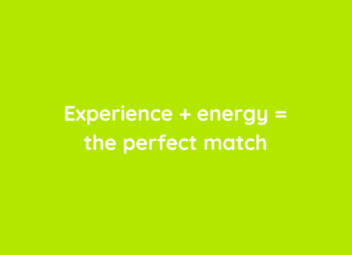
It’s all about balance baby! This year Season 2 of Apple TV’s latest offering, ‘Severance’ gripped viewers across the world with its absurdist critique of office culture (see here for the cast’s ‘outside of the box’ PR stunt, which we loved).
For those who weren’t crazy enough to splurge on an Apple TV+ subscription, let us give you the TL;DR version - the show is a sci-fi psychological thriller that follows the workers at Lumon, a massive faceless corporation with a mysterious function.
The main story follows a selected group of so-called ‘severed’ employees, who willingly choose to have their memories - and therefore their personalities - separated via a small chip in their brain. Whilst at work they have no idea what their external life is like, and when they’re outside of work they have zero recollection of their job. It's a dark and spooky parody that plays with the concept of what’s known as ‘work-life balance,’ a topic which has taken the cultural zeitgeist by storm and infused itself within modern business practices today.
Aside from making for really good television, Severance has gotten people talking, so for this week’s blog we thought we would pay attention, by listing some of our main takeaways from the show on how best to achieve the fabled ‘work-life balance’. Praise Kier!
1. Leaving your worries at the (elevator) door
Separation, whether by entering a new building, floor, room or simply changing your clothes, is a crucial part of maintaining healthy boundaries and a productive working life. Any of us who have experience working from home are no strangers to the blurring of boundaries that can often accompany days spent in half pyjamas and half office attire!
You don’t have to ride the elevator all the way to the severed floor, but linking a physical change to your working hours can do wonders for one’s concentration - this can also mean conducting short bursts of exercise throughout the day, getting in a short walk, or simply standing up (groundbreaking, we know). The important thing is that you occasionally change your surroundings. Many offices nowadays even employ focus pods for quiet working, or breakout rooms for project work into their design for this very reason.
(Conveniently, our two lovely meeting rooms are available to rent for the day should this need arise, but you didn’t hear that from us.)
2. Rewarding work
At Clearbox, we never waste an opportunity to make some noise about each other's achievements. Since motivation is intrinsically linked to the reward systems in our brain, it makes sense that the workplace isn’t any different. We all want to be rewarded for our efforts, or reap some satisfaction from a job well done. Sometimes all it takes is sharing some satisfying client coverage, a cup of tea or a collective woohoo, but showing awareness for the hard work of others is a crucial part of maintaining a strong company culture.
This can sometimes seem as trivial as a ‘melon party’ amidst a sea of productivity propaganda, but trust us when we say, it can oftentimes be the little things that make a huge difference. We recommend asking yourself, what are your primary motivators at work? Which aspects make you feel the most appreciated?
Acknowledging which reward systems are at play in your brain when engaging in tasks will ultimately improve how you show up at work, and help to identify what areas maybe aren’t working best for you. Love what you do and all that good stuff…
3. Buddy up
In Severance, the team at the obscurely named MDR (Macro-data refinement) department eventually join forces to revolt against their oppressive management. We’re not suggesting you do this of course, but the fact remains that having a group of like-minded colleagues to trust and collaborate with is a key facet of a fulfilling working life. Knowing that your colleagues are on the same wavelength as you is the backbone of any successful team. It might take a simple team meeting, coffee catch-up or effective internal messaging system, but ensuring your team feels connected should be a priority.
At Clearbox, we pride ourselves on an open, communicative culture across departments. Yappers by name, yappers by nature - and we’re happy to report we’ve had zero uprisings to date!
4. Transparency
At the end of the day, no job will ever feel truly balanced unless you understand what you’re doing. Instead of poking around on the computer and waiting for numbers to ‘feel bad’ we recommend asking yourself - do I have clear goals? Are there pathways to progression, and have these been communicated effectively? Who do you go to with concerns? We’re in the business of communicating, which means we know it's easy to miss this step. Getting carried away in the minutiae of the day-to-day is a regular occurrence for most of us, so it’s important to take the opportunity every now and then to take a step back and look at the big picture goals. What are you really trying to achieve? There is no such thing as a stupid question!
In conclusion, the key to optimum ‘work-life’ balance is more straightforward than you might think, though the concept itself is quite flawed. By being a tad more human in approach, and maintaining perspective and organisation, any business and employee can flourish both in office and out.
At Clearbox we believe we shouldn’t be treating our personal and professional lives as opposing and conflicting forces, but merely two different ways in which we focus our energy, as part of a varied and (hopefully) fulfilling lifestyle.
No music dance experience is worth compromising for!


